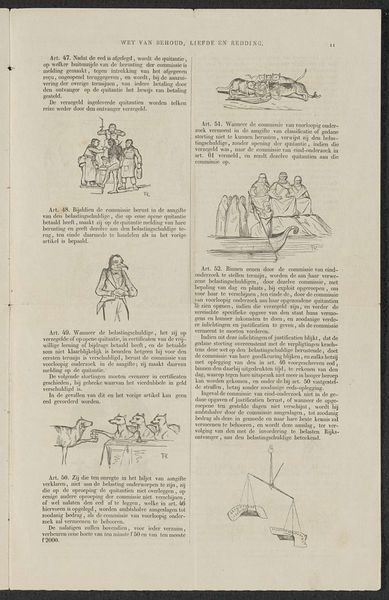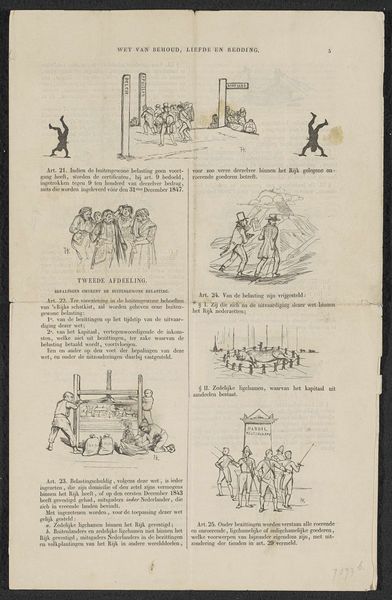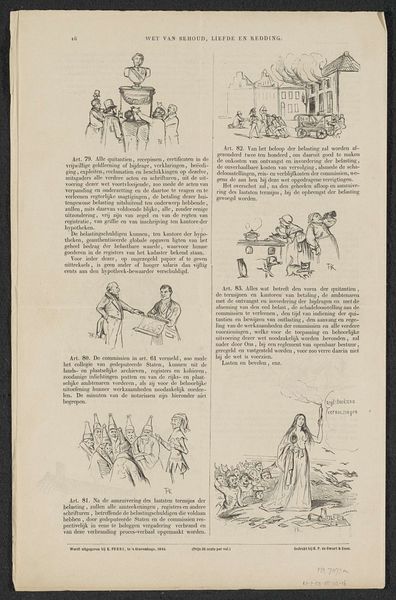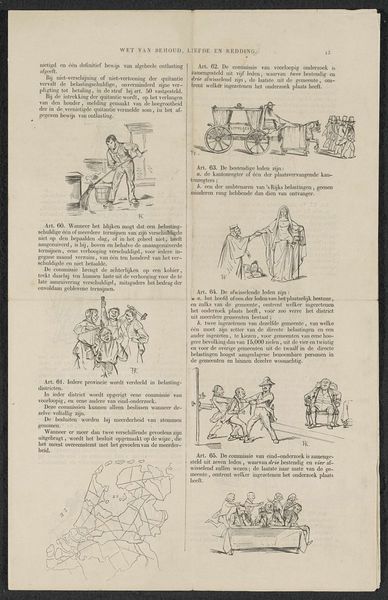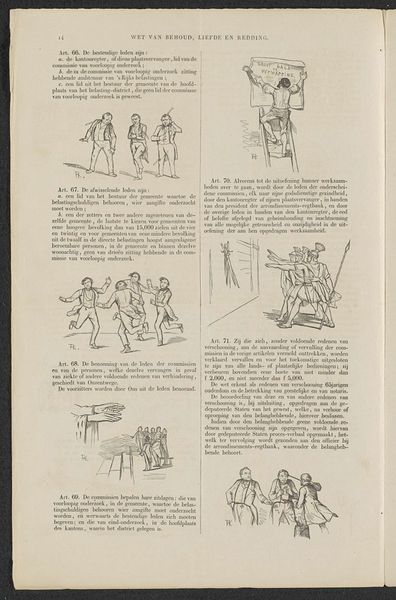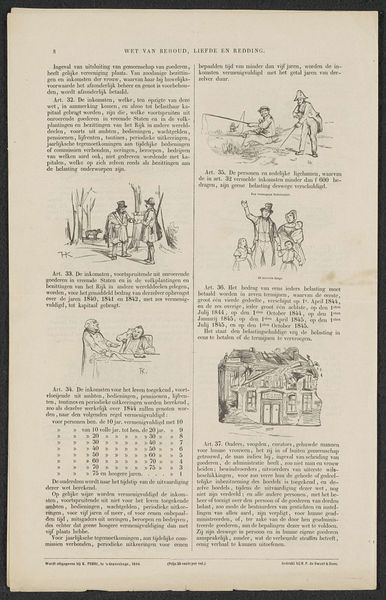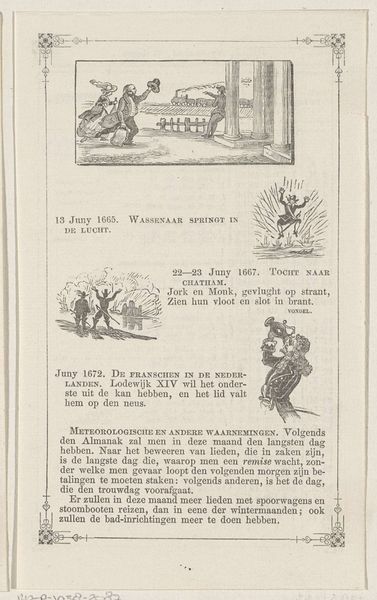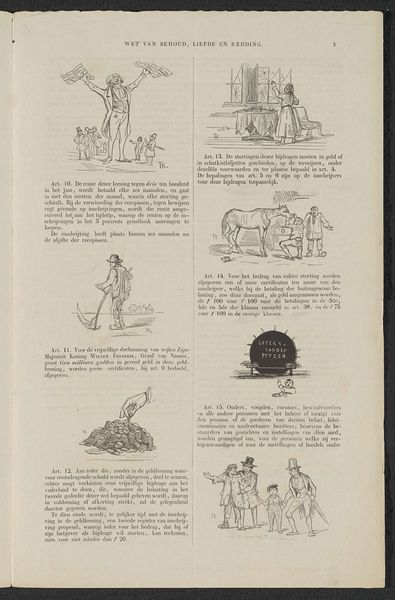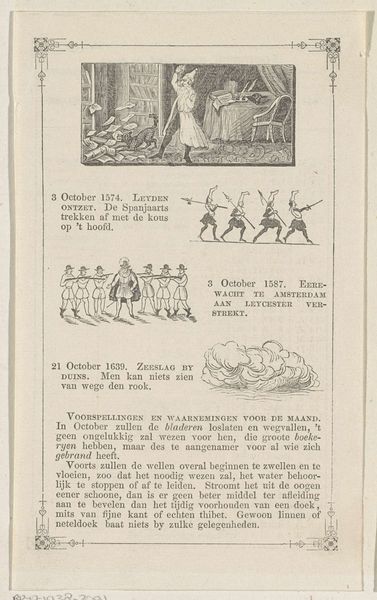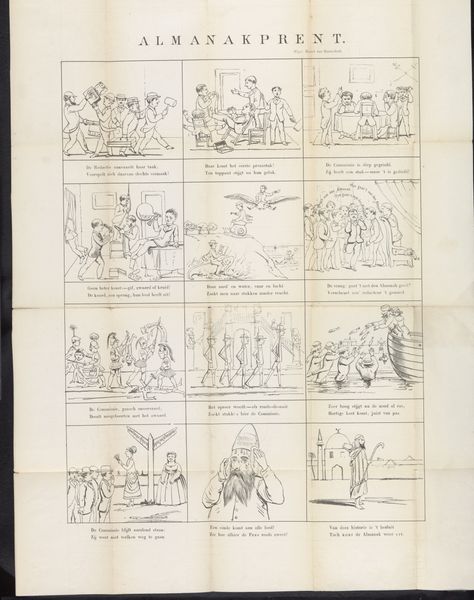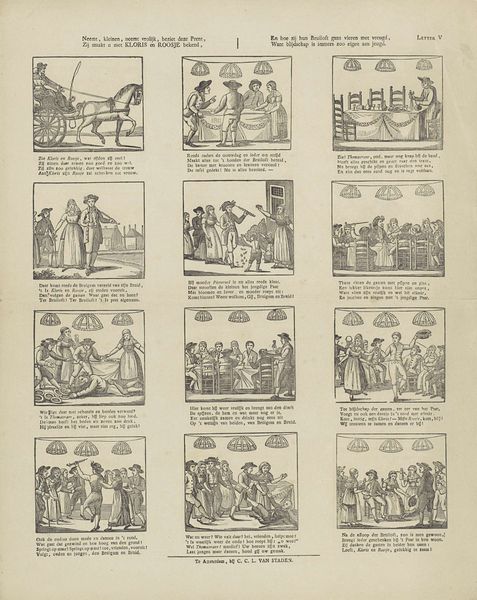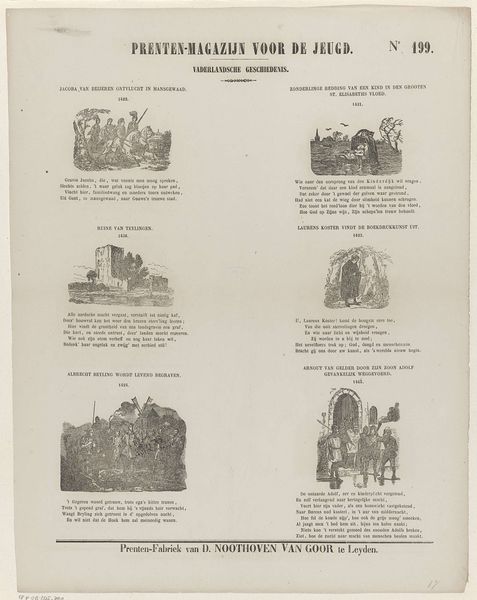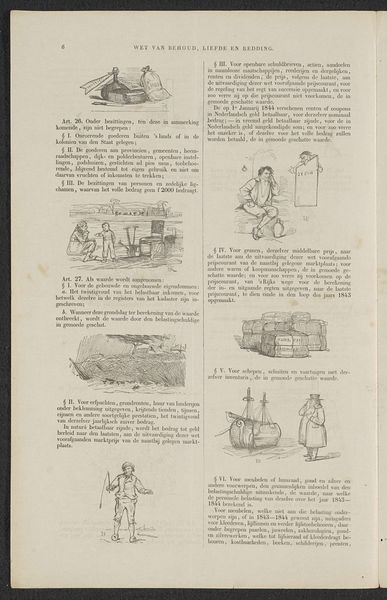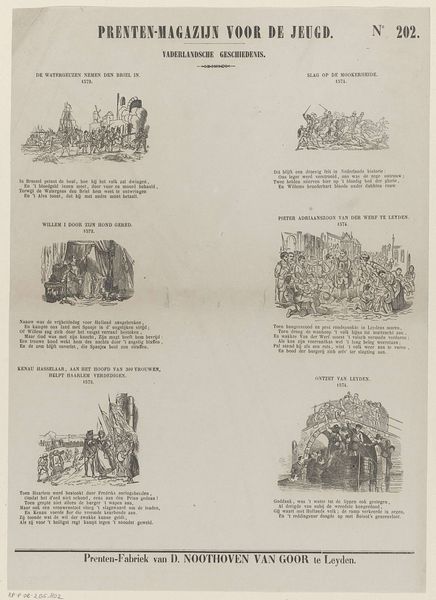
Herdruk van de satire op de aansporing tot deelneming in de (zogenaamde) vrijwillige 3% geldlening van 1844 (blad 12) 1844
0:00
0:00
hermanfrederikcareltenkate
Rijksmuseum
graphic-art, print, engraving
#
graphic-art
# print
#
caricature
#
engraving
Dimensions: height 385 mm, width 245 mm
Copyright: Rijks Museum: Open Domain
This satirical print by Herman Frederik Carel ten Kate, made around 1844, critiques a forced loan in the Netherlands using potent symbols. Notice the recurring motif of the candle. In the European tradition, the candle is often associated with enlightenment, or the divine. Here, the extinguishing of the candle and the surrounding darkness symbolize a subversion of enlightenment. We see this symbol used differently in Caravaggio's paintings, where a candle is a guiding and divine light. However, both artworks tap into the subconscious fear of darkness, or lack of clarity. The image has a cyclical structure as the meaning of the candle transcends its original context, resonating with psychological and emotional undertones that speak to the human condition. The artist's use of light and shadow in these symbolic representations is not merely aesthetic but a deep-seated psychological engagement with the themes of corruption, awareness, and subversion.
Comments
No comments
Be the first to comment and join the conversation on the ultimate creative platform.
